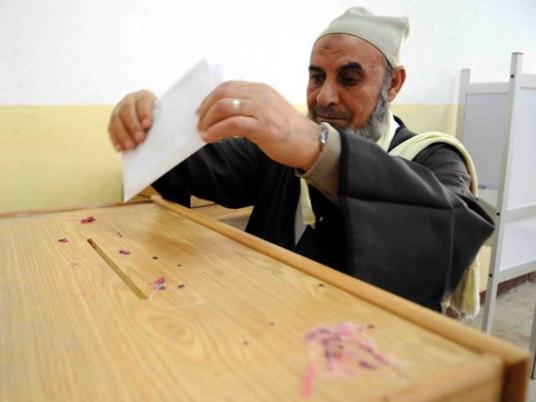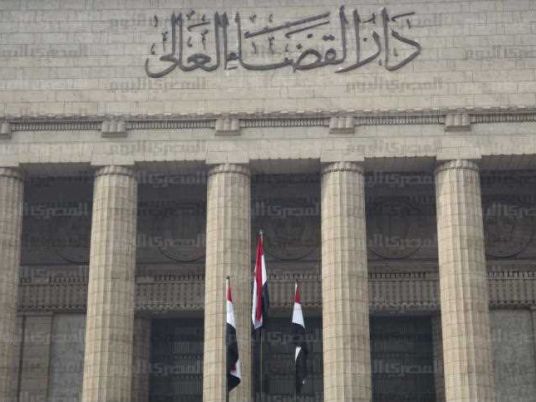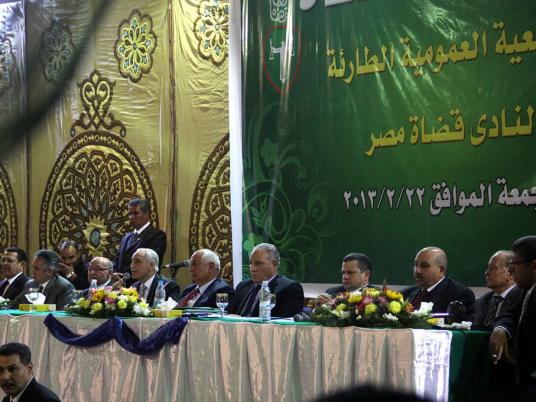
As voting in the first phase of parliamentary elections ends, privately owned newspapers are focusing on Islamist parties’ violations while state-owned dailies put a positive spin on the electoral process under the supervision of the Supreme Council of the Armed Forces (SCAF).
State owned Al-Ahram daily leads with praise from SCAF head Field Marshal Hussein Tantawi and Major General Ismail Etman for the electoral process and high turnout, which they estimate to be 70 percent. Etman also downplayed electoral violations, saying they were not systematic and claiming they occurred in only 15 polling stations out of more than 3000.
Tantawi added that military forces securing the polling stations did not document any violations or violence.
Privately owned Al-Shorouk's report contradicts those statements, saying judges witnessed blatant violations by the Muslim Brotherhood’s Freedom and Justice Party (FJP), including bribing voters. According to a source from the Judges Club, judicial supervisors observed an Islamist party representative intimidating a judge in 15 May district as well as voters attempting to break into a polling station where one of the judges was absent.
Privately owned Al-Tahrir and the party paper Al-Wafd are both critical of Islamist parties and alleged violations. Under a front-page headline “Freedom and Justice and Nour lead the lists of violations,” Al-Tahrir cites Al-Nakib Center for Training and Democracy Support as reporting that FJP representatives at one station coerced voters and ripped the ballots of those who did not cooperate.
The Nour Party is the main political arm of the Islamist Salafi group.
Al-Tahrir also runs a story on page two about the alleged violations, likening the Muslim Brotherhood to the dissolved National Democratic Party (NDP). The article takes a strong editorial tone in condemns the FJP for stationing popular committees outside polling centers, providing microbuses to give voters free rides and distributing food and water.
“Don’t they [Muslim Brothers] realize that doing that during the elections is considered bribery and election campaigning while the first is a violation of Sharia and the second of law?” writes Al-Tahrir.
Al-Wafd's front-page headline reads, “the Higher Elections Commission plays with fire.” Similar headlines follow: “Suspicious silence on the exploitation of FJP, Nour and the Egyptian Bloc to religion in elections,” “Parties of Freedom and Justice, Nour and Wasat continue violating the law,” “Supporters of Nour candidates assault a legal observer."
Privately owned Al-Dostour emphasizes Islamists' dominance of elections with a front-page headline that reads, "Egypt on the doorstep of a religious state … and the military council’s position is vague."
Coverage of the Tahrir sit-in is less prominent amid elections reporting, but Al-Ahram runs a small, third-page story citing a security source who confirms that an officer who is accused of firing rubber bullets at protesters' eyes has not left the country.
The officer and his family moved from their house to another location in Egypt due to the threats they have been receiving, the sources said.
Abbasseya Criminal Court absolved a policeman of charges that he attempted to murder a protester in front of al-Zawya al-Hamra police station in January, reports Al-Ahram. The presiding judge ruled he was not guilty, saying he was acting in self defense when the police station was attacked by armed men targeting officers.
Egypt's papers:
Al-Ahram: Daily, state-run, largest distribution in Egypt
Al-Akhbar: Daily, state-run, second to Al-Ahram in institutional size
Al-Gomhurriya: Daily, state-run
Rose al-Youssef: Daily, state-run
Al-Dostour: Daily, privately owned
Al-Shorouk: Daily, privately owned
Al-Wafd: Daily, published by the liberal Wafd Party
Youm7: Daily, privately owned
Al-Tahrir: Daily, privately owned
Freedom and Justice: Daily, published by the Muslim Brotherhood's Freedom and Justice Party
Sawt al-Umma: Weekly, privately owned
Al-Arabi: Weekly, published by the Nasserist Party



